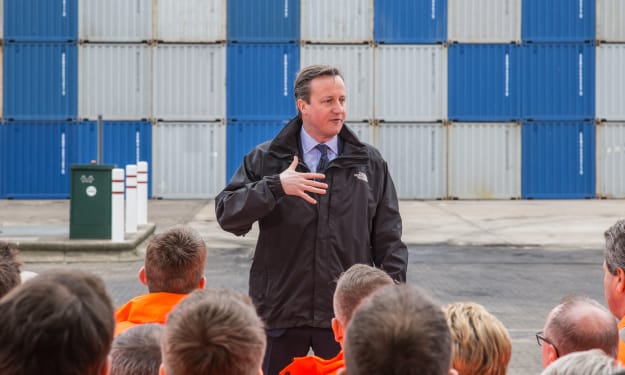Student Debt Relief?
Left in the hands of the courts

On February 28, 2023 the Supreme Court of the United States (SCOTUS) heard cases regarding President Biden’s student loan relief plan. On August 24, 2022 it was announced that student loan borrowers from low and middle class would have $10,000 of their loan forgiven ($20,000 for Pell Grant recipients). Biden had used the HEROES ACT to support the proclamation. Once the plan was announced, opposition immediately rose and two prominent cases stood out and progressed up to the Supreme Court to be heard. Presently, millions of Americans are awaiting the decision of the SCOTUS to determine if they will receive the much needed relief.
Biden’s intent for the proclamation was to provide financial relief to many borrows who may have had their loans paused because of the COVID pandemic. For nearly a year, these low to middle class workers may have lost their job or were laid off due to lockdowns. Of course, loan repayments were also deferred, but interest still accrued on these loans. For many families it will take time to rebuild their income to pre-COVID levels. With the relief, it could help return financial stability to these homes, especially borrowers with a remaining balance under $10,000.
Some political analysts believe the decision to relieve Americans of student debt should have passed through congress. Congress should have voted on whether or not the American people needed the debt relief. Some republican lawmakers in congress consider the proclamation a political move which oversteps the purpose of Congress and is against the will of the American people (Rep. Jeff Duncan of SC). Which American people want to rely on Congress to vote on whether or they deserve relief, when the majority of the Republican party seems against the idea?
In America, many citizens who fall in the low income tax bracket are African Americans and/or immigrants. For these families who have the motivation to seek a better way of life for themselves and their family are aware of how essential it is to obtain a post-secondary education. Unlike the upper class, they lack the financial support to attend college without signing for a student loan. Though many student loans are designed to begin payment six months after graduating, interest collected will make any amount borrowed more than what is initially asked for. Furthermore, if these college students are faced with adversity in seeking employment, it will delay their repayment plan increasing the amount owed. Bottom line, low to middle class students end up paying more for college than affluent students paying directly for the education.
The federal government occasionally intervenes to financially support corporate businesses. For example, when many banks were suffering financially due to a subprime mortgage crisis in 2008 which triggered a recession, the federal government allocated $700 billion to bail out banks. Furthermore, during the COVID pandemic, the federal government once again allocated funds to bailout airlines (approximately $54 billion) to avoid many companies from crashing into bankruptcy. Why are American citizens not considered for the same relief as banks and the airlines? Biden’s student loan relief will only cost approximately $300 billion.
The counter argument would be, “those who took out the loans, knew what they were signing up for. Why should they have a bailout?” Corporate businesses also knew what they are signing up for when they started up, however the difference between a business and a person: a business can use a multitude of tax breaks to offset costs and increase profit. An American citizen cannot. Those holding student loans are usually in jobs where there are no opportunities for tax breaks. Additionally, student debt affects both political parties. Both blue and red states have many constituents who would be grateful for the debt forgiveness.
Unfortunately, the decision lies in the hands of the Supreme Court. Presently, the courts are made up of a conservative majority. There is a high chance they may rule against Biden’s relief plan, deeming it unconstitutional and leaving millions of Americans to suffer longer in debt. If the federal government is willing to support corporate businesses, it should also be allowed to support the American people when they are in need as well.
About the Creator
Iris Harris
An aspiring novelist. I enjoy writing ghost, horror, and drama. Occassionally, I dabble with some essays. You can find more of my work with the link below:






Comments (2)
It'll be interesting to see how it plays out.
There is definitely a double standard going on when it comes to debt relief. Shameful that leaders would have their priorities so backwards. Makes me sick. Excellent article on a topic that is on many people’s minds right now! 👏💖